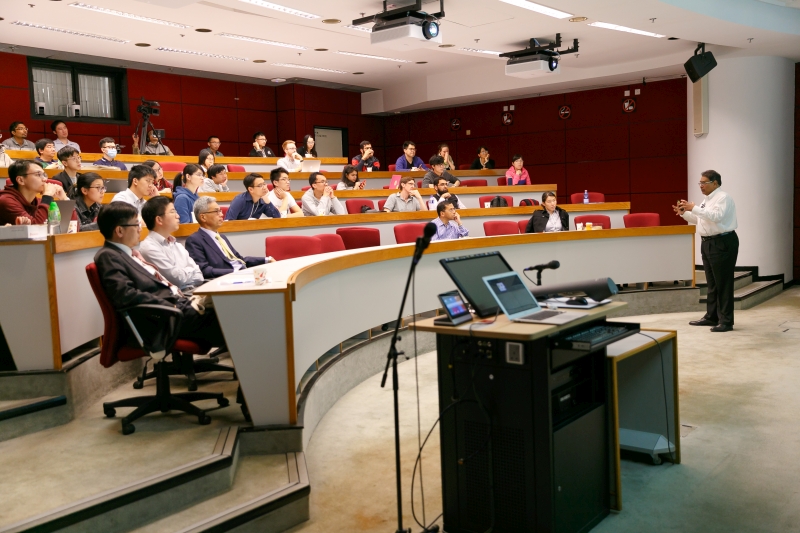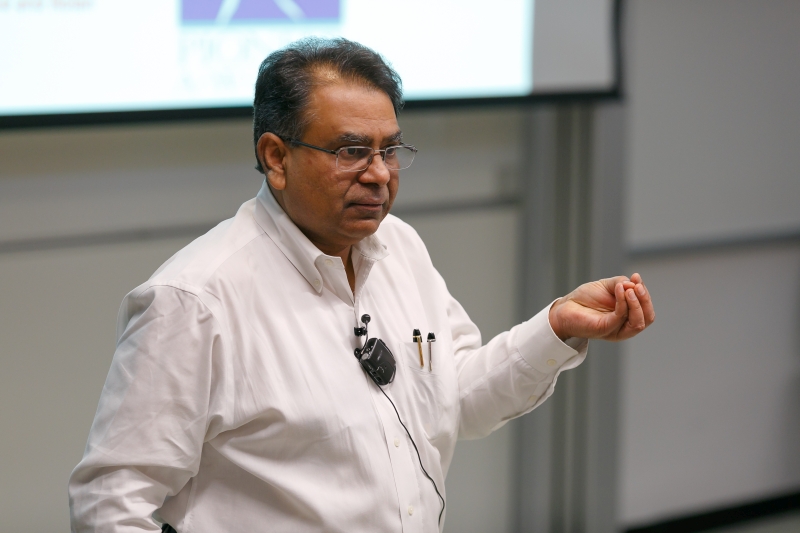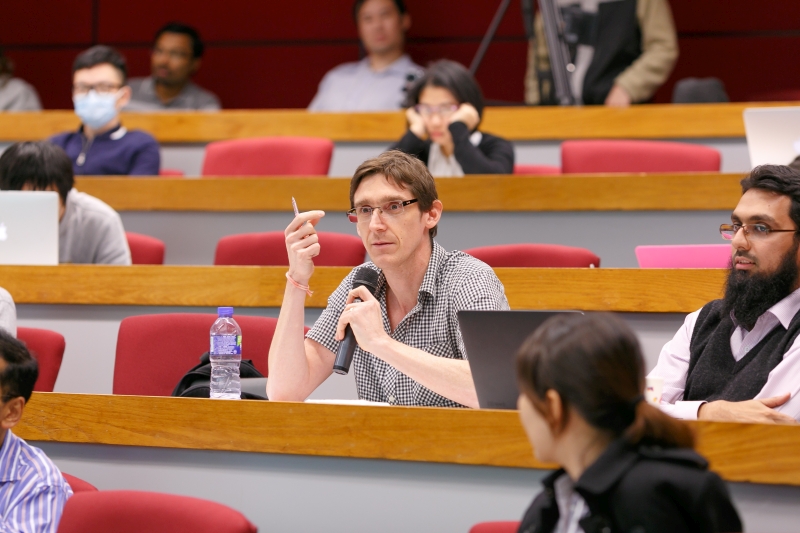Rational Design of Vaccines against Mutable Pathogens: HIV as a Case Study
Abstract
Infectious pathogens have plagued humanity since antiquity. Vaccines have successfully combated, and even eradicated, many such pathogens. Indeed, no medical procedure has saved more lives than vaccination. But, today pathogens have evolved and have defied successful vaccination using the paradigms pioneered by Jenner and Pasteur. Many of these infectious agents are highly mutable or present themselves in different guises. HIV is a prominent example. What is required to combat such scourges on the planet is rational, rather than empirical, design of vaccines based on obtaining and harnessing a mechanistic understanding of the pertinent immunology and virology.
In this lecture, the speaker will describe mechanistic studies aimed toward rational design of effective vaccines against such highly mutable pathogens. Specifically, he will focus on how approaches rooted in statistical physics (e.g., Hopfield models, Feynman path integrals, frustration, computer simulations) can complement in vitro experiments and clinical studies to shed light on basic biological mechanisms, knowledge that can then be harnessed to guide vaccine design. The example he will use to illustrate concepts is T cell and antibody immune response to, and virology of, HIV.
About the speaker
Prof. Arup Chakraborty received his PhD in Chemical Engineering from the University of Delaware in 1988. He joined the University of California at Berkeley, where he became the Warren and Katherine Schlinger Distinguished Professor and Chair of Chemical Engineering. In 2005, he moved to the Massachusetts Institute of Technology (MIT) and is currently the Robert T. Haslam Professor of Chemical Engineering, Professor of Biological Engineering, Chemistry and Physics. He is a founding member of the Ragon Institute of Massachusetts General Hospital, MIT and Harvard. He is also the founding Director of MIT’s Institute of Medical Engineering and Science.
For over twelve years, the central theme of Prof. Chakraborty’s research has been the development and application of theoretical/computational approaches to study how T lymphocytes, orchestrators of the adaptive immune response, function. Over the previous three years, this has included efforts to study the human immune response to HIV. A characteristic of his work is the impact of his studies on experimental immunology, and more recently, clinical studies (he collaborates extensively with leading immunologists).
Prof. Chakraborty’s work at the interface of the physical, life, and engineering sciences has been recognized by many honors that include a NIH Director’s Pioneer Award, the E.O. Lawrence Memorial Award for Life Sciences, the Allan P. Colburn and Professional Progress awards of the American Institute of Chemical Engineers, a Camille Dreyfus Teacher-Scholar award, a Miller Research Professorship, and a National Young Investigator award. Prof. Chakraborty is a Member of the US National Academy of Engineering and a Fellow of the American Academy of Arts and Sciences and the American Association for the Advancement of Science.











